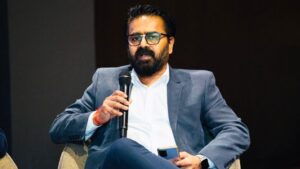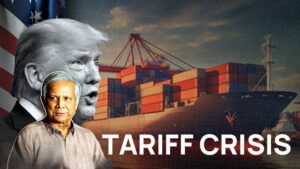It is a well-known fact that cotton yarn manufacturing constitutes the backbone of the textile industry in India. Yet, many factors in the past few years have unwittingly pushed the spinning industry to a glut situation with over-supply of cotton yarns, in particular. For one, the industry has seen unprecedented investments leading to huge capacity building. Added to this has been unpredictable monsoon which determines the arrival of cotton crops, wavering cotton prices, reduction in demand of cotton yarn from China and absence of a strong policy intervention to ensure security for cotton manufacturers.
Fighting to stay alive, progressive companies are taking the R&D route with focus on innovation and differentiation to stay relevant. The country is no longer just a traditional cotton yarn manufacturer of basic qualities, but now also has in its portfolio diverse yarn types which would help it capitalize on the emerging global market for innovation. Interestingly, the demand for differentiation is coming not only from global textile and retail brands but also from Indian customer base. A young, economically empowered Indian population that has a rising aspiration for a better life has created an evolved Indian consumer that is more discerning than ever, ready to place his money on brand and quality, eager to explore the organized retail market. Currently, there is nearly 40% of merchandise at the 400+ Indian malls and millions of retail stores belonging to apparel and home textiles showing immense opportunities for the Indian textile industry.
Five Textile companies with thrust on PD share their journey…
RSWM…
Living a philosophy ofproduct innovation
 RSWM Ltd., a pioneer in textile manufacturing with its two popular collections, Mayur and Cannello sold worldwide, also invests a lot of time and energy in new product development. The company’s ideology is to remain competitive and relevant by continually investing in formulation of new products and introducing them in the market at the earliest. Raj Rishi, Corporate Strategy, RSWM Ltd., referring to its differential product strategy, elaborates, “‘Diverse’ is what makes us a brand away from the crowd. We not only produce cotton and synthetic yarns but also offer eco-friendly yarns, core spun yarns, hollow core yarns, dyed yarns, fancy yarns and mélange yarns. You speak of any yarn category and we have it available with us.”
RSWM Ltd., a pioneer in textile manufacturing with its two popular collections, Mayur and Cannello sold worldwide, also invests a lot of time and energy in new product development. The company’s ideology is to remain competitive and relevant by continually investing in formulation of new products and introducing them in the market at the earliest. Raj Rishi, Corporate Strategy, RSWM Ltd., referring to its differential product strategy, elaborates, “‘Diverse’ is what makes us a brand away from the crowd. We not only produce cotton and synthetic yarns but also offer eco-friendly yarns, core spun yarns, hollow core yarns, dyed yarns, fancy yarns and mélange yarns. You speak of any yarn category and we have it available with us.”
However, regarding India’s stance as a basic/commodity yarn/fabric producer, he feels that India is still perceived the world over as an essential cotton producer. But he claims that RSWM Ltd. has been at the forefront of creating a transformation in the country’s image by catering to a wide product category in multi-fibre yarns using exotic fibres like cupro, dyneema, Kevlar to name just a few. Even there are other spinners in India who are diversifying their product range to manufacture various kinds of fancy yarns but India will have to go a long way to break its traditional approach and adorn a radical perspective, he feels.
NSL Textiles…
Making PD the root of growth

Being a regular and consistent supplier of knitting yarns to selective domestic markets like Kolkata and overseas markets like Korea, NSL Textiles has managed to maintain high standard of yarn quality providing 100% modal yarn, 100% tencel yarn and yarn made of blends with modal/tencel with cotton and linen for both weaving and knitting sectors. With an installed production capacity of 2,80,000 ring spindles for producing combed and compact ring spun yarns, 3,744 Rotors for making OE yarn and 18 tonnes/day of yarn dyeing, the company also holds 1,800 bales/day ginning capacity. Though Nagesh M, DGM – Yarn Marketing, NSL Textiles, Hyderabad agrees with the increasing plight of the Indian cotton yarn manufacturers, he is positive of growth as his company has adopted a two-step approach – unique product development and specific target markets that have resulted in huge success even in a slow market.
Speaking about the importance of new product development in the company, Nagesh avers, “Feel and comfort, of course, are very important aspects in any garment these days and without them, any product will only have a limited life span. Similarly, yarns made out of new fibre types are gaining popularity over the past few decades.” He strongly believes that innovative new fibres will always be in demand because of the requirement of different applications such as breathability, durability, temperature control, water-repellent, moisture absorbency etc. in different types of wear like workwear, sportswear, protective wear and functional wear. Nagesh further adds that apart from these factors, sustainability is the new mantra in the field of textiles which is sure to stay for a long time. “The focus now is on the usage of eco-friendly fibres, eco-friendly manufacturing of textiles, eco-friendly work practices and proper re-cycling of textiles after their uses. We all have to be individually responsible rather than being followers of any set norms,” avers Nagesh
Adopting flexibility in the delivery of order types, the company is now offering a wide range of slub yarns from Ne 20s to 60s, finer counts like 40s, 50s combed core-spun yarn and a variety of blends of tencel with cotton and linen and blends of cotton and linen with counts ranging from 14s to 40s. To add to their benchmark as producers of finer counts and blends, NSL Textiles are currently specialized masters in selecting good quality kappas and following exclusive work practices like contamination sorting of cotton in their own ginning factories.
Nimbark Fashions…
Collaborative approach to innovation

Nimbark Fashions believes that product development is the brain behind any collection. Therefore, they have an experienced team who have worked and seen many seasons in the textile domain and have a knack of catching the latest market trends, handling PD. The company runs on a cycle of constant production with 5-6 products ready for new launches at any particular time period. “India is mainly an exporter of commodity yarns and fabrics. But, considering the ongoing scenario where more value-added fabrics are in demand, Indian manufacturing units are also diversifying towards value addition which will support a movement away from the perception of India as a basic yarn/fabric manufacturer,” says Mahesh Maheshwari, Director, Nimbark Fashions Pvt. Ltd. He adds that a good collection of products is their biggest strength along with constant supply of quality and quantity of yarn/fabric manufactured. “Our products allow our client to remain in front of their competitors and maintain their profit margin,” he says.
Offering products such as filament yarn, viscose, cotton-dyed fabric, modal silk, dupont silk, variations of linen, soft yarn with various colour variations, the company provides the industry with something new every time in terms of product development. “We rely on customer feedback for product development and also we have a few consultants with whom we work regarding trends,” shares Mahesh. Apart from our 2 spinning mills, the company also outsources work to a dedicated 2,000 spindle as well. “Our production capacity from one lakh spindles every month is about 1,000-1,200 tonnes and the understanding of fashion has given us the flexibility to offer as less as 10 kgs of yarn, if so required,” says Mahesh.
Indorama Industries…
Riding high on Inviya

Indorama Corporation has managed to become one of the most geographically assorted producer of spun yarns. This company ensures that its product development team encompasses human capital from diverse domains like polymer science, textile science and chemical process engineering who have the capability to work in sync with experts in the same field from US, Korea and China. Indeed, this organization goes a step forward in supporting its product development team with an in-house developed “pilot polymerization plant” located at its manufacturing facility at Baddi for the development of coloured spandex. This pilot line is an excellent facility equipped with ultra-modern technology having the capacity to produce 1 MT of polyurethane polymer per day. Today their brand INVIYA® is the only spandex manufactured in India which is offering a new advanced and improved spandex to its customers.
In fact, the company’s close co-ordination with its customers ensures that it helps them during all types of developmental needs and hence, is ahead of the competitive industry. “We are also in the process to develop coloured spandex and specialty spandex, like antibacterial and anti-odour spandex, provided the demand from end customers’ supports required volumes to run these products,” informs Shalendra Vasudeva, Chief Marketing Officer, Indorama Industries Limited. He adds, “So far, India has been well regarded as a strong supplier of commodity yarns like cotton yarns and polyester textured yarns, but with initiatives by many other textile companies, the world is beginning to acknowledge our strengths in speciality products too.”
Gimatex Industries…
Taking PD down to ginning

Gimatex Industries Pvt. Ltd., a completely integrated textile facility with Ginning, Spinning, Weaving & Processing units under its fold has the vision to provide premium quality textile products to its customers using the latest in textile technology. Run by a highly dynamic and experienced management and supported by a strong skilled workforce of 3,000 people the group has become a strong player in the market and a name to reckon with.
Gimatex has thrived using values of innovation, quality, and ethical practices as its pillars of growth. Stakeholders dealing with the company continue to maintain the relationship on a long-term basis. “This association flourishes in the environment of mutual trust that is present between the company and its business partners and other stakeholders. Our ever-growing sales figure is a testimony to our customer-centric approach,” says Prashant Mohota, Managing Director, Gimatex Industries Pvt. Ltd.
The company has ventures into the unknown theme of merging the numerous procedures right from ginning to processing to help in the final product layout. It also possesses highly sophisticated labs with miniature lab machines where small runs of different fibre blends, with separate twists and feel can be carried out for many trials, from fibre stage to finished fabric stage under the special supervision of extremely skilled technicians. Gimatex is one such textile name which provides testing capacities to its customers to assure them of the premium quality products that it is delivering. It has launched its new mobile app G-force to raise its standards of service quality for its privileged customers.
Speaking about India’s altering role as an inherent commodity producer of yarns and fabrics, Prashant encapsulates, “India, as a primary producer of yarns/fabrics, has of course moved leaps but has still not reached the desired level. Our focus on mass manufacturing along with more stress on cotton fibre rather than plenty of other synthetic fibres with unique properties renders us weak when it comes to delivering high-value items and becoming one of the superior manufacturers of the world.”
Synthetic yarns
The most promising textile domain
 Synthetic fibres are the talk of the day amongst the world leaders in textiles. Be it in the form of modal, tencel, rayon, acrylic or viscose, there has been a huge bend globally towards these functional based fibres and yarns where fabric attributes carry the most importance. Despite a fluctuating, transient world economy, the aura of man-made textiles continues to spread in an unparalleled way due to the high-value, high-quality and multifarious performance obtained from these technologically developed apparels.
Synthetic fibres are the talk of the day amongst the world leaders in textiles. Be it in the form of modal, tencel, rayon, acrylic or viscose, there has been a huge bend globally towards these functional based fibres and yarns where fabric attributes carry the most importance. Despite a fluctuating, transient world economy, the aura of man-made textiles continues to spread in an unparalleled way due to the high-value, high-quality and multifarious performance obtained from these technologically developed apparels.
With the rise of a sophisticated and socially conscious consumer with improved lifestyles and rapid urbanization, man-made fibres are the most progressive product segments that are here to stay for a very long time. Besides, an increased awareness on sustainability, IT integrated technical garments and R & D activity conducted by various textile companies to survive in this neck-and-neck close competitive environment, ensures that new fibre blends are created with the help of different finishes, looks and textures to meet the sweeping demands of today’s forever inquisitive consumers. At present, synthetic textiles occupy more than 50% of the total textile output globally and are projected to see even more crucial growth ahead because of the need for the development of new blends for production of diversified fabrics.
China is already at the forefront of this radical change being the largest manufacturer of synthetic fibres. With the Indian cotton spinning industry being the second largest in the world after China, the alarm bell is already ringing in our country to boost its performance in this booming yarn sector at the earliest. The textile companies in India are looking to strengthen their capabilities in man-made yarns/textiles, but support of Governmental measures, a reduction in import and central excise duty and fresh investment is required to achieve the desired level as a principal manufacturer on the world stage.






